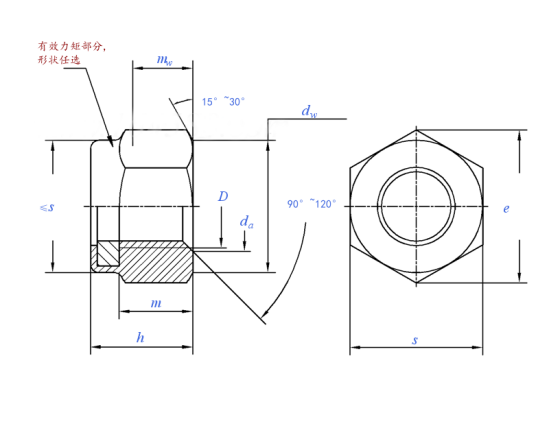Custom Design High-Strength Stud Bolts for Industrial Applications and Projects
Dec . 10, 2024 10:11 Back to list
Custom Design High-Strength Stud Bolts for Industrial Applications and Projects
Custom Stud Bolt E8 Understanding Specifications and Applications
Stud bolts are critical components used in various industrial applications, particularly in construction and engineering sectors. When we refer to a custom stud bolt E8, we typically mean a specialized fastening device designed to meet specific dimensional and material requirements for various applications.
What is a Stud Bolt?
A stud bolt is a type of fastener that consists of a threaded rod with no head, which allows for versatile applications in securing two parts together. They usually come with threads on both ends and can be used in conjunction with nuts or within tapped holes. Stud bolts are preferred in situations where a high level of clamping force is necessary, such as in flanged joints, pressure vessels, and various assembly configurations.
E8 Specification
The designation E8 typically refers to a specific standard or classification within the broader category of stud bolts. While there may not be a universal or internationally recognized 'E8' specification, it can relate to particular manufacturing standards set by specific industries or companies.
Understanding what E8 signifies in this context is crucial. It often encompasses requirements regarding dimensions, materials, strength, corrosion resistance, and other mechanical properties of the stud bolt. For instance, E8 could denote a certain type of coating or surface treatment that enhances the bolt’s durability or resistance to harsh environments.
Customization of Stud Bolts
The term 'custom' implies that the stud bolt has been tailor-made to fit unique specifications, differing from off-the-shelf products. Industries often require custom solutions to address specific challenges, such as unique load-bearing requirements, environmental conditions, or fitting within compact spaces.
When designing custom stud bolts, several factors must be considered
- Material Selection Depending on the application, materials ranging from carbon steel, stainless steel, and alloy steel to exotic materials like titanium or Inconel may be used. For environments exposed to corrosive substances, selecting the right type of steel or applying protective coatings becomes imperative.
custom stud bolt e8

- Length and Diameter Custom stud bolts can be manufactured in various lengths and diameters to suit particular assembly requirements. Proper sizing ensures that the fastening solution can accommodate specific load conditions.
- Thread Type and Pitch The threads on a stud bolt can be customized in terms of type (e.g., coarse, fine, UNC, UNF) and pitch, impacting its compatibility with nuts and other fastening components.
- Fine-tuning Mechanical Properties Custom stud bolts may undergo various heat treatments or processes to achieve desired tensile strength, hardness, and ductility. This is particularly important in high-stress applications, such as in oil and gas or aerospace industries.
Applications of Custom Stud Bolts
Custom stud bolts find utility in a range of industries, including
- Oil and Gas They are used to connect flanges on pipelines and pressure vessels, where they must withstand extreme pressures and corrosive environments.
- Construction Custom stud bolts are often used in structural applications to connect beams, braces, and other critical components.
- Aerospace In this sector, precision is paramount. Custom stud bolts ensure that parts remain securely fastened on aircraft, where safety is crucial.
- Marine With exposure to saltwater and harsh conditions, custom stud bolts for marine applications often require specific coatings or materials to prevent rusting and deterioration.
Conclusion
In summary, custom stud bolts, particularly those defined as E8, represent a sophisticated solution for meeting the diverse fastening needs of various industries. By understanding the intricacies involved in the design and application of stud bolts, companies can maximize efficiency and ensure safety in their operations. As industries continue to evolve and demand higher performance from their components, the role of customized fasteners will undoubtedly grow more prominent. Investing in quality custom studs aligns with broader goals of sustainability and reliability in engineering practices, ensuring that projects adhere to both safety standards and operational excellence.
Latest news
-
High-Quality Panel Stud Bolt Reliable Panel Stud Bolt Factory & Suppliers
NewsJul.08,2025
-
High-Precision Fine Thread Locknuts Manufacturer & Supplier Custom Solutions
NewsJul.08,2025
-
PH Imperial Stud Bolt – High Strength Fasteners from Leading Supplier & Factory
NewsJul.07,2025
-
High-Quality Allen Wrench Bolts Leading Factory, Company & Suppliers
NewsJul.07,2025
-
Wholesale Ball Stud Bolt - High Quality Supplier & Factory Price Reliable Wholesale Ball Stud Bolt Company
NewsJul.06,2025
-
High-Strength Alloy Bolts Manufacturer & Supplier Quality Alloy Fasteners Factory
NewsJul.06,2025
